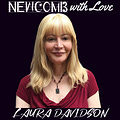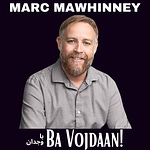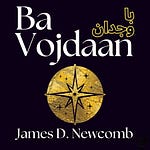In this episode, I discuss the book 'The Logic of Freedom' with author Laura Davidson. Laura shares her background in earth sciences and social sciences, particularly focusing on economics, philosophy, and the Austrian school of thought.
The conversation covers various topics including the principles of libertarianism, free will, consciousness, and the differences between the noumenal and phenomenal realms as introduced by Immanuel Kant.
The interview also explores the psychological dynamics behind totalitarian regimes and crowd psychology, highlighting how fear and manipulation can lead to the erosion of individual freedoms.
Our discussion ends on a note of optimism, encouraging readers to pursue truth and goodness as pathways to a freer and more meaningful life.
Episode highlights:
03:10 Laura's Background and Motivation
04:37 Exploring the Non-Aggression Principle
07:18 Free Will vs. Determinism
10:25 Levels of Consciousness
17:51 The Noumenal and Phenomenal Realms
23:44 Kant's Influence on Modern Thought
24:40 The Concept of Freedom in Politics
26:06 Free Will and Human Instincts
27:46 Manipulation and the Dark Triad
30:33 Totalitarianism and Crowd Psychology
37:23 The Non-Aggression Principle
42:09 Spiritual Insights and Eternal Truths
44:26 Closing Remarks and Book Promotion
Resources mentioned:
The Logic of Freedom by Laura Davidson
About the guest:
Laura Davidson is an accomplished author, researcher, and multi-disciplinary thinker who has established herself as an influential figure in the fields of economics, philosophy, and libertarian ethics. Her work, which is characterized by a rigorous approach to complex issues, has been published in numerous peer-reviewed journals.
Davidson is a recipient of the prestigious Lawrence Fertig prize in economics from the Ludwig von Mises Institute, which recognizes her outstanding contribution to the field of economics in the Austrian tradition. In addition to her writing, she is a frequent speaker at libertarian and economic research conferences, as well as other venues, where her presentations have been praised for their clarity and originality.
Davidson is a graduate of Oxford University, where she studied earth science and developed an understanding of the natural world and its complexities. Her intellectual curiosity subsequently led to an interest in the social sciences. Through her recent research and writing, she seeks to promote a more integrated and holistic understanding of the world we live in, one that takes account of both the natural and social dimensions of human experience.
While stressing that the social and natural sciences employ very different methodologies, she realizes that they can inform and enrich each other through a shared commitment to logical reasoning. Her work has received widespread recognition, and she continues to be a prominent voice in the ongoing conversation about the intersection of science, philosophy, and economics.
About The Logic of Freedom
What does it mean to be truly free? In this bold and ground-breaking exploration of human freedom, libertarian philosopher Laura Davidson challenges us to contemplate the true nature of liberty. In doing so, she leads us to question many things we may think we know about the human condition and the world around us.
Genuine freedom starts with an understanding we have freedom of the will. And yet many present-day scientists and philosophers argue that free will is merely an illusion. Their claim is that the activity of the brain is a purely physical process, analogous to the operation of a computer. But this implies we are mere automatons and cannot be held morally responsible for what we do. Moreover, if human thought and action is strictly deterministic, then this seriously challenges the notion of a genuinely free society by legitimizing the initiation of force and threat of force, particularly by those in positions of power.
This book strongly disagrees with determinism and tackles it head-on. Drawing from studies in consciousness and the philosophy of mind, Davidson presents a logical argument to demonstrate why the human will is inherently free. While acknowledging that our choices are clearly influenced by certain biological instincts, many of which we have inherited from our evolutionary past, she employs fresh insights to show why we alone are the final arbiters of how we act. Unlike animals, which possess a lower form of consciousness, our decisions are not made for us. Her innovative and original ideas are a breakthrough in the discourse on free will, bringing a new perspective to the age-old question of whether or not human beings have real agency.
However, while most people employ their will to cooperate with others, some individuals choose to dominate with force in order to attain power and, under certain conditions, are able to manipulate the masses in a way that leads to tyranny. A crucial aspect of Davidson’s argument is that political control of any kind, including all forms of force and coercion, is inconsistent with our humanity as free and rational beings and with life itself. She demonstrates why a genuinely free society is mankind’s natural destiny and argues that it can ultimately be achieved. Nevertheless, true political freedom of this kind will only occur when the libertarian principle of nonaggression is strictly observed in all areas of life.
She reaches startling and thought-provoking conclusions on the relationship between law, personal morality, and society, challenging some of the most basic foundations of modern polity, and ends with addressing perhaps the most important issue of all: the nature of absolute truth, and how an understanding of such truth leads to genuine freedom and happiness.














Redefining Liberty: Laura Davidson on Free Will and Society